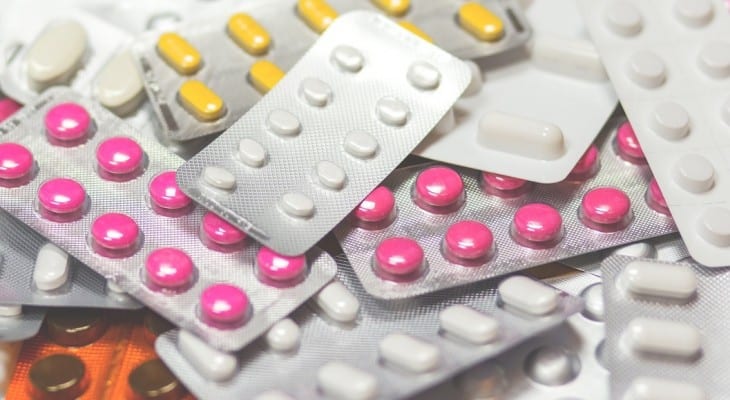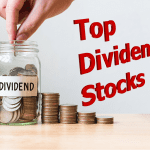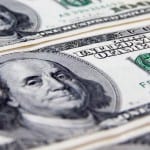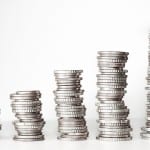2 Drug Manufacturers Offer 2.5% Dividend Yields, 25%-Plus Above Industry Average Yield
By: Ned Piplovic,

The failure of the July 28 vote in the U.S. Senate to repeal the Patient Protection and Affordable Care Act, commonly known as Obamacare, extended the uncertainties in the U.S. health care market.
However, two drug manufactures continue to reward their shareholders with a steady and rising dividend income, as well as long-term asset appreciation. The two stocks currently pay dividends that yield 2.5%, which is more than 25% higher than the straight average yield for the drug manufacturers industry.
While share prices of these two companies showed only modest gains over the last 12 months, the prices have risen more than 85% over the past five years. While the ex-dividend dates are two weeks apart on August 11, 2017 and August 25, 2017, the pay dates in early September are only four days apart, as shown by the table below.

Eli Lilly and Company (NYSE:LLY)
Founded in 1876 and headquartered in Indianapolis, Eli Lilly and Company develops, manufactures and markets pharmaceutical products through two segments – Human Pharmaceutical Products and Animal Health Products. The company offers products to treat diabetes, osteoporosis, human growth hormone deficiency, pediatric growth conditions and diverse types of cancer. Additionally, the company makes products for treatment of depression, anxiety, fibromyalgia and chronic pain. Eli Lilly provides additional products for treatment of various disorders, such as schizophrenia, attention-deficit hyperactivity disorders (ADHD), obsessive-compulsive disorder (OCD), bulimia nervosa and panic disorders. The company’s animal health portfolio includes various vaccines, cattle feed additives, protein supplements for cows, leanness and performance enhancers for swine and cattle, antibiotics, anticoccidial agents for poultry, as well as chewable tablets that kill fleas and prevent flea infestations and heartworm diseases.
The $0.52 quarterly dividend yields 2.5% and converts to a $2.08 annualized dividend payout. Compared to the drug manufacturer industry’s straight average yield of 1.99%, Eli Lilly’s current yield is 25.76% higher.
The company has resumed hiking its dividends over the past three years after distributing a flat $1.96 annual distribution for six consecutive years between 2009 and 2014. However, in the 12 years prior to 2009, the company boosted its annual payout at an average rate of 8.5% per year.
After dropping more than 21% between Aug. 1 and the beginning of December 2016, the share price recovered all losses by mid-February 2017 and continued to rise an additional 6.3% to reach its new 52-week high in early April 2017. Since the April peak, the share price pulled back 4.7% and closed on July 31, 2017, at 82.66. While the current share price is just 1.3% higher than it was 12 months ago, the price rose 84% over the past five years.
Johnson & Johnson (NYSE:JNJ)
Johnson & Johnson researches, develops, manufactures and sells health care products worldwide. The company operates through three segments: Consumer, Pharmaceutical and Medical Devices. The Consumer segment offers baby care, oral care, women’s health products and beauty products under multiple brands, which include Johnson’s, Listerine, Clean & Clear, Stayfree, Carefree, Band-Aid, Neosporin, Neutrogena and more. Additionally, the company manufactures and distributes Tylenol, Sudafed, Benadryl, Zyrtec, Motrin IB, Pepcid and other over-the-counter medicines. Through its Pharmaceutical segment, the company offers various products in the areas of immunology, infectious diseases and vaccines, neuroscience, oncology, cardiovascular and metabolic diseases. The Medical Devices segment provides orthopedic, general surgery, sterilization and disinfection and electrophysiology products, as well as disposable contact lenses. Founded in 1885, Johnson & Johnson’s headquarters are in New Brunswick, New Jersey.
After raising its quarterly dividend payout 5% from $0.80 to $0.84 in the last quarter, the company will pay a $0.84 dividend distribution again this quarter. This quarterly amount is equivalent to a $3.36 annualized payout and yields 2.5%. The current 2.5% yield is more than 28% above the straight average yield for all companies in the drug manufacturer industry. JNJ’s dividend yields fares even better when compared to the 1.81% average for the consumer goods sector or the 0.64% health care sector average.
Since starting to pay a dividend in 1944, the company boosted its annual payout amount every year for 54 consecutive years. Over the past 45 years, the company hiked its annual dividend distribution 400-fold because of an average growth rate of 14.2% per year.
While the share price rose 96% over the past five years, it grew just 6.8% over the past 12 months. However, the steady rising dividend and the long-term stable share price make the Johnson & Johnson stock a great pick to build the base for a steady income and stable growth portfolio.
With almost $40 billion of cash on hand and an annual free cash flow of about $15 billion, JNJ is one of the only two S&P 500 companies with a AAA credit rating – Microsoft (NASDAQ: MSFT) is the other. Johnson & Johnson’s current dividend payout ratio of 54% leaves plenty of room for continued rising dividends in the future.
Dividend increases, dividend decreases, new dividend announcements, dividend suspensions and other dividend changes occur daily. To make sure you don’t miss any important announcements, sign up for our E-mail Alerts. Let us do the hard work of gathering the data and sending the relevant information directly to your inbox.
In addition to E-mail Alerts, you will have access to our powerful dividend research tools. Take a quick video tour of the tools suite.








 Connect with Ned Piplovic
Connect with Ned Piplovic
